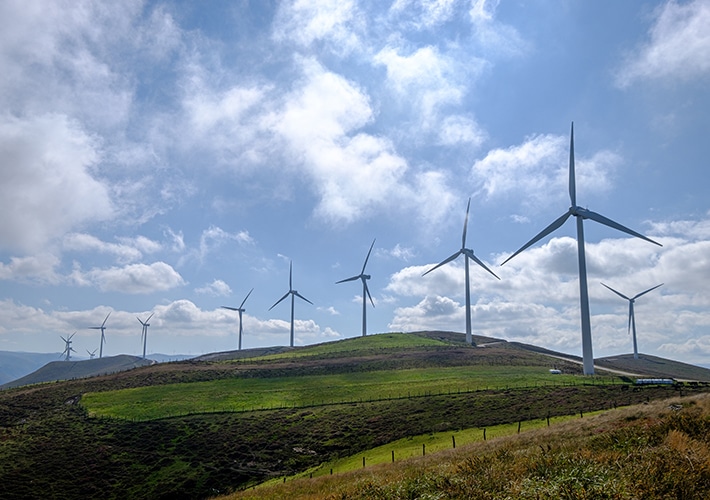
Industry challenges for sustainable production
Sustainable production has become a primary goal for a number of industries by 2024. From steel to power generation, the global industrial sector is adopting practices that seek to reduce environmental impact and promote sustainability. In this article, we explore the challenges and opportunities facing the industry in achieving more efficient and environmentally friendly production.
What do we mean by sustainable production in industry?
Sustainable production in industry refers to the implementation of production processes that minimize environmental impact and promote energy efficiency. It involves the use of recycled materials, waste reduction and supply chain optimization. This approach not only improves efficiency, but also contributes to the circular economy, where waste is converted into new resources.
In 2024, sustainability in the industry is a priority, as the aim is to reduce greenhouse gas emissions and the carbon footprint. All of this with a view to meeting the objectives set by the European Union in the 2030 agenda.
One of the main objectives of sustainable production is to reduce environmental impact through the use of renewable energies and the adoption of recycling practices. The food and textile industries are at the forefront of these efforts. However, other industries more closely related to our activity, such as the steel and paper industries, are also adopting measures related to sustainable production.
In addition, artificial intelligence plays a crucial role in the digital transformation of industries, enabling more precise monitoring and control of production processes. Thus, greater efficiency and a significant reduction in environmental impact are achieved.

The industry’s commitment to more sustainable production
The industry has made a firm commitment to sustainable production, adopting measures to reduce greenhouse gas emissions and optimize energy use. In the steel industry, for example, recycled materials and recycling practices are being used to minimize waste. Industry 4.0 has facilitated this transition, promoting digital transformation and the adoption of advanced technologies that improve energy efficiency and reduce environmental impact.
Sustainability in industry is a key objective, and many companies are investing in innovation to achieve this goal. The integration of renewable energies, the implementation of more efficient production processes and the adoption of circular economy practices are some of the strategies employed.
These initiatives not only benefit the environment, but also strengthen the competitiveness of companies in an increasingly demanding market.
How can Nortek help you in your goal of sustainable production?
Nortek offers innovative solutions to support companies in their goal of sustainable production. With advanced technologies and expert advice, Nortek helps to optimize production processes, reduce emissions and improve energy efficiency.
Being committed to the shift towards Industry 4.0, one of the ultimate goals of Nortek’s industrial solutions is the optimization of the amount of lubricant used by our systems. This significantly reduces the volume of discarded oil and grease.
In addition, a good lubrication system reduces friction and therefore reduces the power consumption of the machines, thus reducing the amount of energy required to keep the machinery running.
Main challenges for the industry to achieve sustainable production
Reduction of carbon emissions:
One of industry’s biggest challenges is to reduce carbon emissions. The carbon footprint of many industrial processes contributes significantly to climate change. To mitigate this impact, it is essential to implement strategies that reduce greenhouse gas emissions. Energy efficiency and the use of advanced technologies, such as artificial intelligence, can play a crucial role in optimizing production and reducing emissions.
Transition to renewable energies:
The transition to renewable energies is another significant challenge for achieving sustainable production. Industries need to shift to solar, wind and other renewable energy sources to reduce their dependence on fossil fuels. This transition will not only help reduce environmental impact, but can also result in greater energy efficiency and cost reduction in the long term.
Efficient use of resources:
Efficient use of resources is crucial for sustainability in the industry. Optimizing production to use less materials and energy can significantly reduce environmental impact. Implementing circular economy practices, where waste is recycled and reused within the production process, is an effective strategy to improve efficiency and sustainability.
Waste management and reduction:
Waste management and reduction is a constant challenge for many industries. Implementing recycling and reuse processes for recycled materials can help reduce environmental impact. In our case, the adoption of lubrication techniques such as air-oil systems helps to greatly reduce the amount of waste and facilitates waste management in water treatment plants.
Sustainable technological innovation:
Technological innovation is fundamental to achieve sustainability in the industry. Our constant development from our R&D department optimizes production processes, reducing the use of energy and materials needed to achieve optimal lubrication. The iron and steel industry, for example, can benefit from reduced energy consumption and other techniques that reduce its environmental impact.
Digital transformation and the adoption of Industry 4.0 technologies are essential for sustainable production. These technologies enable greater transparency and control over the supply chain, facilitating the implementation of sustainable practices. In addition, technological innovation can open up new business opportunities and improve the competitiveness of companies in an increasingly environmentally conscious market. Improve your industrial processes with Nortek, your trusted partner.